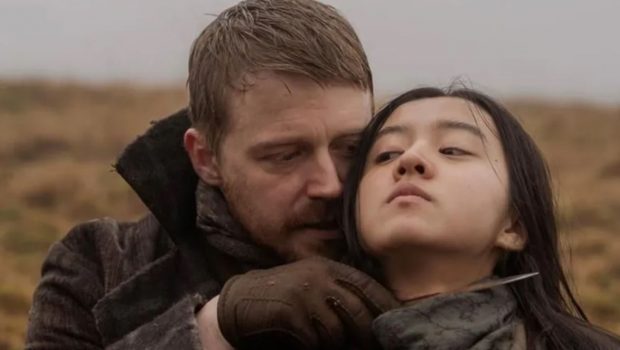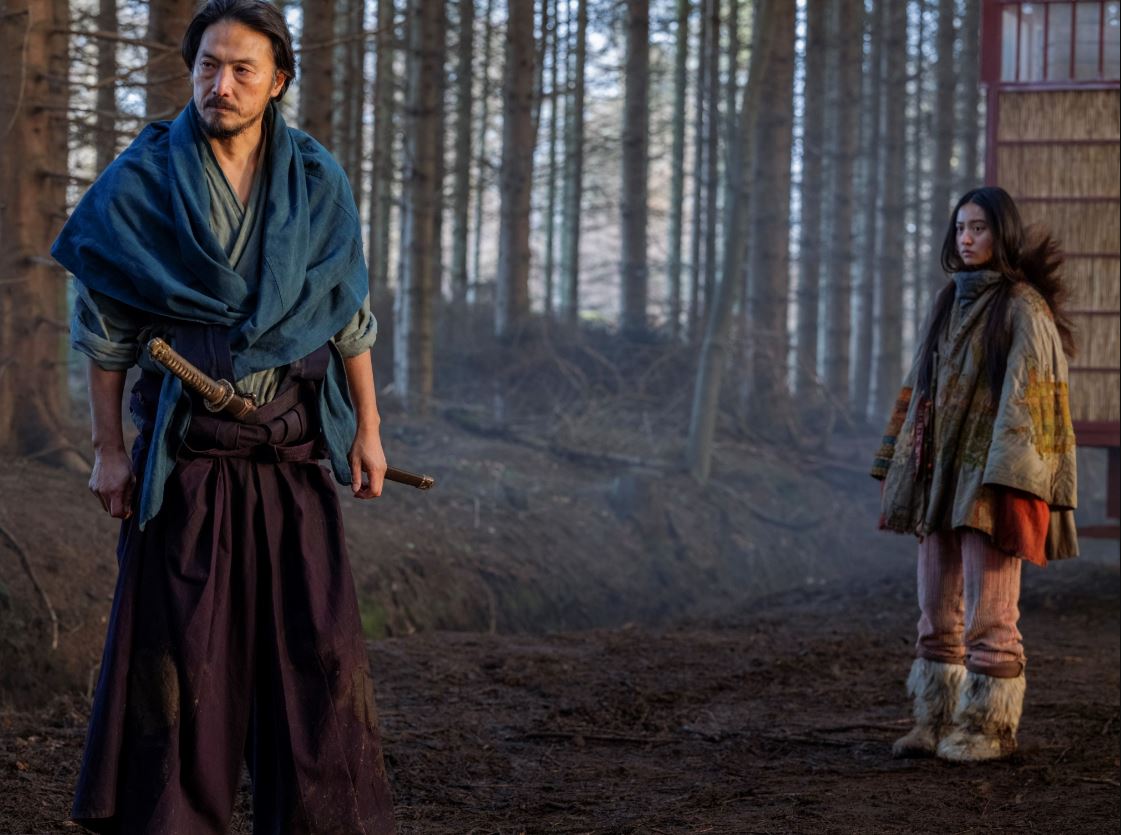Tornado – Film Review
Reviewed by Harris Dang on the 30th of May 2025
IFC Films presents a film by John Maclean
Screenplay by John Maclean
Produced by Leonora Darby, James Harris, and Mark Lane
Starring: Kōki, Tim Roth, Jack Lowden, Takehiro Hira, and Joanne Whalley
Cinematography Robbie Ryan
Edited by Ryan Morrison and Selina Macarthur
Music by Jed Kurzel
Rating: TBA
Running Time: 91 minutes
Release Date: TBA
Set in 1790s Britain, Tornado tells the story of its titular character (a graceful yet formidable Kōki, who will become a star if she keeps this up). Tornado is a rebellious and burgeoning young woman who is the daughter of a puppeteer, Fujin (a gruff yet tender Takehiro Hira), Together, they form a travelling Samurai puppet show.
They live a quiet existence as they perform for the poor for very little financial gain. The elements bear down on them, gradually breaking down their mettle and making the people desperate to escape their ongoing predicament. Tornado sees an opportunity to do just that when she encounters a group of nefarious bandits, led by Sugarman (a compellingly jaded Tim Roth) and his son, Little Sugar (a conniving and slithery Jack Lowden). But her impulsiveness proves grave for herself and her father as the two sides clash. It leads Tornado down a path of ultraviolence, self-discipline, and vengeance of the highest order.
Tornado is the latest film from Scottish filmmaker John Maclean, who is best known for his darkly comedic western debut Slow West (2015). With a sharp visual eye, an adroit sense of humour, and a knowing reverence for genre cinema, Maclean earned accolades for his feature film debut. A decade later, he returns with a genre mash-up that mixes the western genre and the jidaigeki (Japanese period drama) genre with the uncompromisingly stark beauty of the Scottish Highlands.
While the idea of mashing up those two specific genres with a self-reflexive approach is nothing new (Sukiyaki Western Django by Takashi Miike is a recent example), writer/director Maclean and screenwriter Kate Leys aim for an elegiac approach. By relying on atmosphere, minimalism in its narrative logistics, and a meditative yet gradual escalation, the storytelling is economical, refreshing, and powerful.
The story’s non-linear fashion sees us thrown into the middle of the conflict, drawing us to the villains’ character dynamics before introducing our heroes. While it may resemble a daring and almost misguided choice, the different perspective contrasts the father-child relationships of Sugarman and Little Sugar and Tornado and Fujin. Both patriarchs are wise and know the follies of the world, but Fujin has faith in his daughter while Sugarman lacks the same dedication for his son. The children have pent-up anger about the state of the world and channel their emotions by feeding their impulsions. Tornado chooses to be the best of herself for the betterment of others. Little Sugar though leverages his emotions for personal gain.
The cast deserves credit for embodying their characters with the perfect amount of humanity and relishing theatrics as they dive into the story’s pathos. From a filmmaking standpoint, the settings and environments beautifully capture the human struggle in the characters. Kudos to cinematographer Robbie Ryan for not only underlining the beauty with a mythical and cinematic grit but for providing memorable compositions (complete with striking silhouettes) that are remarkably cool and striking to witness. Elizabeth El-Kadhi’s production design complements the minimalist filmmaking style through the authentic use of tents, wagons, and a manor as dwellings. To great effect, Kirsty Halliday’s costumes, including a mixture of kimonos, pelts, and ponchos, achieve a balance of stylisation and understatement. The standout filmmaking value is the extraordinary score by Jed Kurzel. Echoing the work of Ennio Morricone, and making judicious use of strings and organs, Kurzel has orchestrated a fantastical, nostalgic, and mournful soundscape.
Maclean’s adroit sense of humour is peppered throughout the story’s taut runtime. One particularly fantastic example is the accidental use of an accordion by a character struggling for dear life. Meanwhile, moments of bloodletting and gore bring a sense of unpredictability to the set-pieces. While the film may be too glacially paced and emotionally obscure, those swept up by Maclean’s storytelling prowess will reap the spoils as the film concludes on a high note. The swift yet exciting fight choreography is buoyed by glorious bloodshed and well-timed humour.
Tornado is overall a revelatory piece of work. Its cinematic beauty emerges from its sparse narrative and genre tropes and is lifted by memorable performances, Robbie Ryan’s grand cinematography, an amazing music score, and sharp instincts from writer/director John Maclean. Highly recommended.
Summary: Tornado is overall a revelatory piece of work. Its cinematic beauty emerges from its sparse narrative and genre tropes and is lifted by memorable performances, Robbie Ryan’s grand cinematography, an amazing music score, and sharp instincts from writer/director John Maclean. Highly recommended.








